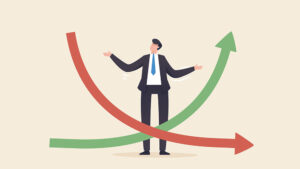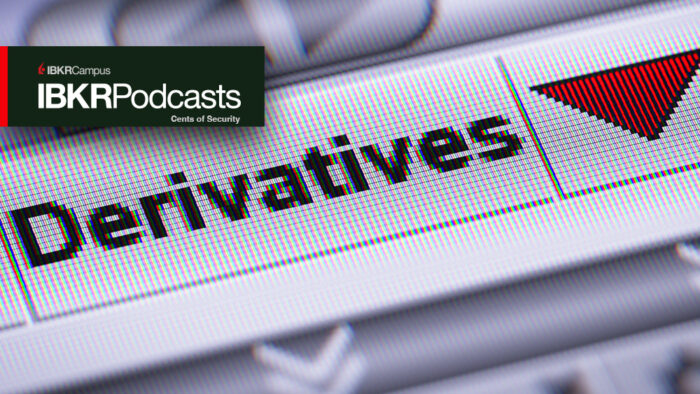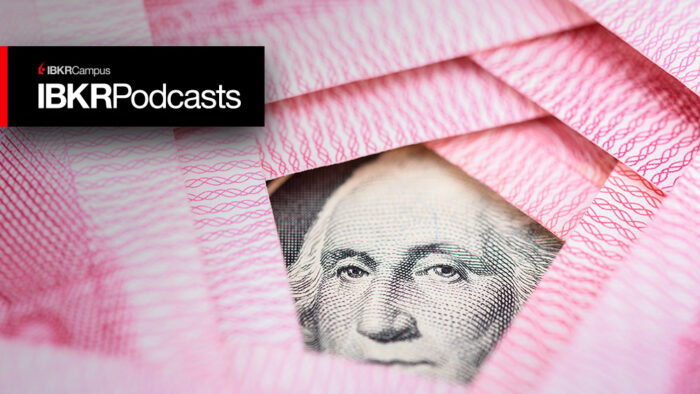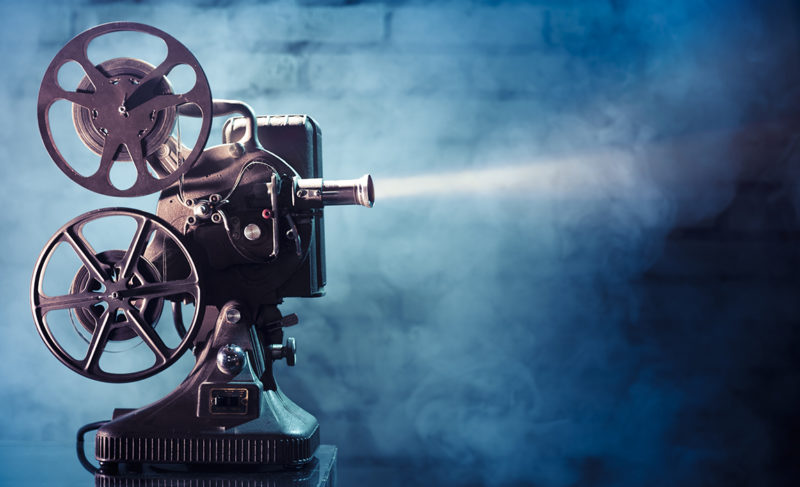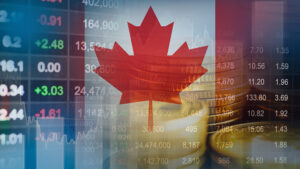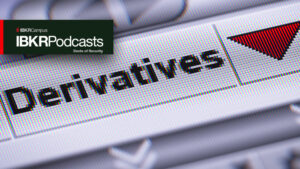“Merry New Year!”
“Looking good, Billy Ray.” “Feeling good Louis”
“Get back in there at once, and sell! SELL!”
“Turn those machines back on!”
Anyone who worked on a trading floor since the early 1980’s had at least one of those phrases shouted at them, or at least in their general direction. These are among the most quotable lines from a film that does double-duty on my personal “best of’s” lists. Trading Places, starring Eddie Murphy and Dan Aykroyd, is certainly one of my favorite market-related movies, one of my favorite holiday-themed movies, and one of my favorite comedies of any kind. An old friend of mine, a doctor, still asks me to explain the market gyrations and strategies to him. Turning today’s piece into a discussion of the timeless lessons and various plot holes of this movie seemed like a much more fun idea than writing once again about quiet holiday trading.
While I encourage all readers to watch Trading Places if you haven’t already done so (and shame on you if you haven’t because spoilers galore ensue), please be warned that there are plenty of elements that viewers might find objectionable. The warning on the STARZ network explains that it is rated R, with Adult Content, Graphic Language, Mild Violence, Nudity, and Outdated Cultural Depiction.
I’d never seen the final warning before, and while I believe that it refers to an odious bit of racism at the 1:20:00 mark and blackface at 1:33:00, there are also anachronistic depictions of all-white, all-male institutions throughout. That said, I have to admit that there are various outdated elements that specifically resonate with me. I never understood why a movie about commodity trading was set in Philadelphia, rather than Chicago or New York, but I don’t mind it in the least. I was at college in Philly when Trading Places was filmed in 1983, so I enjoy seeing the city looking as it did when I lived there. I also began working as a professional trader just a few years later, so it reminds me about how much the mechanics of our business have changed. I never worked in a floor’s commodity trading pit[i], but phoned orders, tickets punched in a time clock, and face-to-face trading all bring at least momentary nostalgia. And the depictions of the World Trade Center, where NYMEX was housed, are of course wistful to many.
The plot revolves around the idea of two sociopathic brothers who own a commodity brokerage deciding to see what happens if they elevate an underprivileged minority to the position of a wealthy executive and debase the high-born executive into difficult circumstances. The means of their comeuppance is an insider trading scheme flipped on its head. Along the way we have many scenes that involve market activity, usually accompanied by enough exposition to allow those who aren’t versed in finance to follow along (though it continues to elude my then pre-med friend).
Let’s discuss some of the insider trading aspects first. Everyone knows, or should, that trading on material, non-public information is a crime. In this case the Duke Brothers have hired a shady private detective to steal the Department of Agriculture’s orange crop report ahead of its release. We were introduced to Clarence Beeks (Paul Gleason) earlier, when he was arranging Louis Winthorpe III’s (Aykroyd) downfall. The Dukes acknowledge the plot in a pivotal scene at the 1:19:30 mark, then Winthorp and Billy Ray Valentine (Murphy) figure it out at the 1:26:15 mark. At that point, they wanted revenge on the Dukes and could have gotten some by exposing the plot to the CFTC and exchange enforcement divisions. But that would have made for a boring movie. So they decide to supply the Dukes with a false report while they kept the correct insider information. Yes, this movie forces us to root for insider traders, abetted by a prostitute and a butler, because they are the underdogs.
The most overt lessons about trading occur around the 56:30 and 1:40:40 marks. The former scene involves the Duke Brothers teaching the novice Billy Ray about commodities and how they trade. This is clearly written as exposition for viewers. Randolph Duke (Ralph Bellamy) explains that while their clients speculate on the prices of commodities, the firm makes money no matter who is right or wrong because they charge commissions. Billy Ray compares them to a “couple of bookies”, which is a quite reasonable analogy[ii].
A few minutes later, around 1:01:10, we have a terrific explanation of nervous market psychology, particularly around year-end. Mortimer Duke (Don Ameche) places a personal order to buy pork bellies into weakness. Billy Ray advises him to hold off, and Randolph calls to have the buy order held up. (Apparently the Dukes’ brokers are not the speediest, even allowing for the slower pace of old-style floor trading). Billy Ray explains that traders are panicking they won’t be able to buy their kids the “GI Joe with the Kung-Fu grip” that they want for Christmas, so the selling is likely to persist a bit more. I love that explanation, and I’ve even used it in media appearances.[iii] As I write this, any holiday nervousness seems to be behind us, but the logic made sense even a week ago.[iv]
The scene at 1:40:40 is when the action shifts to the floor of the NYMEX. After arriving at the WTC, Louis offers a bombastic speech about life in the commodity pits. It’s overwrought – hey, it’s a movie, — but does nicely capture the ideas of “buy low, sell high” and risk/reward. At 1:43:40, Louis offers an explanation – more exposition – about how floor trading worked. Viewers can really appreciate how much the business has changed.
Soon after, chaotic trading ensues. Let’s examine the build-up and action in detail. At 1:41:00, the Dukes inform their floor trader, Wilson (Richard Hunt)[v], about their desire to buy ahead of the crop report. Wilson realizes that they must be committing insider trading and chooses to follow their instructions rather than report them. So, following the Duke’s instructions, he buys, driving up the price from 100 to 142. Again I must question the competence of the Duke’s floor staff. Rather than buying as surreptitiously as possible to get better executions, he drives the price higher, and other floor traders, seeing the price action and the floor presence of the Dukes, push prices higher still. After creating a buying frenzy, Louis and Billy Ray begin to sell short into the strength. Prices begin to decline, yet the Dukes seem at first to somehow mind buying into weakness, only to realize a few seconds later that they may have been duped. After trading freezes to watch the crop report on TV – something I’ve never witnessed in my life – prices plunge on a better, not worse, orange crop. (The supply of oranges will be adequate, thus no need to squeeze juice prices higher. And yes, the pun was intended). As prices plunge, Wilson must join the selling frenzy, eventually getting ordered to get back in there and sell despite an apparent heart attack. Meanwhile, Louis and Billy Ray are covering their shorts at a huge profit. Eventually the market closes with the price at 29, the protagonists essentially reveal that they outdid the Dukes at insider trading, and the Dukes get an old school end-of-the-day margin call that ruins them.
The basics are correct, but there is so much wrong here – even putting aside the insider trading. –
- First of all, how did Louis and Billy Ray get onto the floor to trade? It is possible that the Dukes never got around to removing Louis’ trading privileges, but Billy Ray couldn’t have been registered in that time frame.
- Second, who was guaranteeing and clearing their trades? At 1:39:20 we see them receiving cash from their friends/accomplices at 30th Street Station — money that Ophelia (Jaime Lee Curtis) had earning interest in T-bills (imagine that, mentioned at 1:00:20) — but does that mean that they were somehow able to walk into the exchange with a sack of cash, make clearing arrangements, and pick up badges seamlessly?
- Third, we see Louis and Billy Ray casually take a prime place in the pit. Those spots were zealously guarded. I’ve heard anecdotes about Chicago firms recruiting Big-10 linemen to be able to muscle into and keep prime spots.
- Fourth, there are position and price limits on commodities. The Dukes and the protagonists may have exceeded those limits, but we don’t know for sure. Certainly the sackful of cash guaranteeing Louis/Billy Ray’s trades couldn’t support the position size that the Dukes could. More importantly to the plot, price limits were conveniently ignored. The current price limits on Frozen Concentrated Orange Juice on what is now the NYB-ICE exchange are +/- $10. In the real world, heavy buying would have pushed the price from $100 to $110, then it would have sat at limit up until the crop report. After the report it would have plunged to $90 and sat at limit down. That would have made for much duller trading sequences, so limit up/limit down was conveniently ignored.
- Fifth, and most importantly, who else got hurt? Clearly there were other floor traders and probably upstairs firms ruined by the volatility caused by the insider trading. Also, a loss of the magnitude that the Dukes experienced would have likely crated the clearing house. Losses would have rippled throughout the industry, causing a disruption at best and an industry-wide catastrophe at worst. It is hard to imagine Louis and Billy Ray absconding with their ill-gotten gains to a Caribbean island, as portrayed at the end.
There are other trading questions and faux pas that arrive throughout the movie, btw. At 4:30, Louis gets trading inspiration during a morning shave from his butler. I know that’s how I get all my ideas (um, no), but how many of you do the same? At 8:26, the Dukes are trading from their car on the way to work, but somehow the market is closing. Maybe they got a very late start, or are trading in Europe, but we see no indication of either. On that trip, Louis top ticks the market by filling his order at 76.25. Unfortunately, we have no idea whether he was really filled at that price. The only way to ensure that would be to see it trade higher. But that would make the execution look worse to casual viewers.
So, after all this negativity and fact-checking, why do I still love this movie? Because it makes me laugh, pure and simple. I grew up loving SNL, and these guys were among my favorites[vi]. I was lucky enough to see Eddie Murphy do stand-up in a comedy club, and no one was ever funnier. I can suspend disbelief long enough to enjoy a well-made, hilarious movie. You should too. And Happy Holidays!
—
[i] I taught a seminar at the NYMEX in the late ‘90’s and was fortunate to have gotten to visit the pit used in the movie and meet some of the traders who were used as extras.
[ii] This is an idea that has caught on over the past couple of years, as many traders have moved from sports gambling to options speculation. We’ve discussed the similarities and differences between the two at length, here and here, for starters.
[iii] Shameless plug here: We are launching an Interactive Brokers podcast shortly, and have taped the first episode. In it, amongst other highlights, I explain what happened when I used “the GI-Joe with the Kung-Fu grip” reference on that TV appearance.
[iv] Plot hole – Randolph announces that the firm recommends buying bellies at 64 because Mr. Valentine has set the price. While Randolph can presumably offer recommendations, I can’t imagine that Billy Ray has taken his Series 3 exam by that point.
[v] Few know the actor Richard Hunt’s face, but his voice might be more familiar. He was a puppeteer, the man behind Scooter, Statler, and other beloved Muppets. Even more distressing to Muppet fans was the crooked cop who takes a bribe at the 37:30 mark. He was played by Frank Oz, the voice of Bert, Fozzie Bear, Miss Piggy and Yoda.
[vi] We also get to see SNL alum and future US Senator Al Franken unwittingly abet the crime at 1:36:40.
Disclosure: Interactive Brokers
The analysis in this material is provided for information only and is not and should not be construed as an offer to sell or the solicitation of an offer to buy any security. To the extent that this material discusses general market activity, industry or sector trends or other broad-based economic or political conditions, it should not be construed as research or investment advice. To the extent that it includes references to specific securities, commodities, currencies, or other instruments, those references do not constitute a recommendation by IBKR to buy, sell or hold such investments. This material does not and is not intended to take into account the particular financial conditions, investment objectives or requirements of individual customers. Before acting on this material, you should consider whether it is suitable for your particular circumstances and, as necessary, seek professional advice.
The views and opinions expressed herein are those of the author and do not necessarily reflect the views of Interactive Brokers, its affiliates, or its employees.
Disclosure: Margin Trading
Trading on margin is only for experienced investors with high risk tolerance. You may lose more than your initial investment. For additional information regarding margin loan rates, see ibkr.com/interest
Disclosure: Futures Trading
Futures are not suitable for all investors. The amount you may lose may be greater than your initial investment. Before trading futures, please read the CFTC Risk Disclosure. A copy and additional information are available at ibkr.com.



